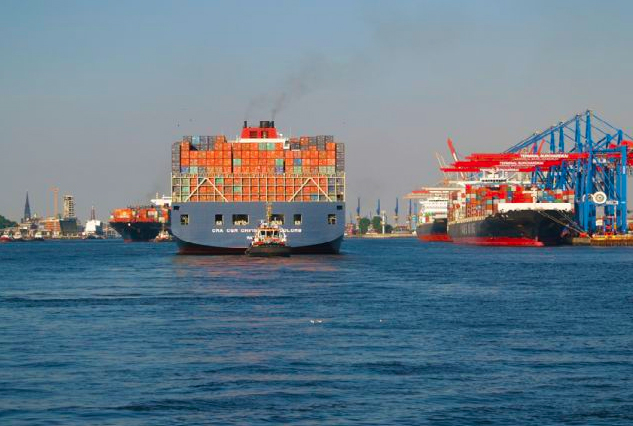Many actors including those[1] who participated in the recently published guide on “Just In Time” acknowledged the need for improved communication between ship and shore-side. Although, the guide focuses only on ships that sometimes wait due to the lack of updates from port stakeholders, it is also important and fair to remind that cooperation between shipping lines and port terminals is a reality in many ports. It is indeed the best commercial interest of shipping lines and port operators to optimize the calls while reducing shipping emissions in ports.
Whether current good practices in this respect could be further encouraged and promoted, the answer is clearly “yes.”
It would have been also very informative to refer in the above-mentioned guide to the issue of ships’ schedule reliability, which is according to many sources, far from being optimal. Ships which arrive late beyond the allocated window or which skip the call provoke real disruption in the organization of port activities be it with respect to the use of the berthing space, to the optimization of the moves on the terminals’ yards or the use of the labor force.
Shipping accounts for around 2-3% of worldwide GHG emissions and if shipping was a country – it is often pointed out – it would be the 6th GHG emitter in the world. However, only 2% of ships GHG emissions are emitted at ports.[2] Moreover, a European Commission study has found that better ship-shore communication/port call communication can only bring about a 1% emission reduction by 2030.[3] Whereas, shipping emits only 2% of all its GHG emissions while at port, terminals only account for about 10% of emissions in port areas.
The above-mentioned numbers indicate that while port/vessel call optimization is sought, it is not the “magical” solution to reduce shipping emissions, as only 2% of shipping’s GHG emissions happen in and around ports. Moreover, the impact of more efficient cargo handling operations is limited as terminal operations only account for 10% of the total port emissions.[4] It should also be noted that, taking into account the fact that neighboring cities are very sensitive to emissions resulting from port operations, terminal operators have several years ago met the 2020 target to reduce GHG emissions (as compared to 1990[5]).
Terminal operators have berthing plans including all the liner services expected to call at their facility each week. It is in the terminal operator’s own best commercial interest to optimize the use of its berth facilities. The same goes for port productivity – usually measured as the number of containers handled per hour. In case the targets are not reached, terminals are compelled to pay penalties to shipping lines.
Very often, when ships are waiting, this usually is because they arrive late. According to the International Transport Forum’s figures, schedule reliability, defined as the share of ships that arrives within one day of the scheduled arrival time, oscillated between 65% and 75% as of May 2018 depending on which trade lane was measured. There is certainly room for improvement for ships’ schedule reliability.
Ships arriving late can still berth if space has come free due to other vessels also arriving late. This results in a complex planning process; terminals need to meet contractual obligations towards vessels arriving on time, while minimizing delays for those vessels arriving off-schedule. To manage this complex planning process, terminals are already in constant contact with shipping lines to receive updates about their estimated time of arrival and change their berth plan accordingly.
Vessels arriving off-schedule also affect the terminal operator’s labor shifts on the docks and yards. Vessels arriving off-schedule will require extra labor force but their owners or managers will not bear the cost of the labor shifts, which did not work at the Estimated Time of Arrival.
Another issue disturbing terminals’ planning process is blank sailing, which is the cancellation by a liner company of its weekly service. This is often done at the same time by different consortia and alliances and has tremendous effects on ports. The high fluctuation of blank sailings per month also makes it difficult for terminals to account for this in their planning process. While blank sailings and capacity adjustments represent good solutions for shipping lines, as shown by their recent good financial results[6], the decisions to cancel calls have huge implications for port stakeholders.
Policy makers should support existing good practices initiated by different Vessel Call Coordination Centres in several ports as well as initiatives aiming at aligning standards and data-sharing that enhance port call processes. Moreover, in view of the significant number of vessels arriving late, schedule reliability should become a priority in order to make the best sustainable use of port capacities. Discussions regarding penalties for ships’ no shows or very delayed arrivals could also be envisaged.
References:
- Guide is the product of a collaboration between the GEF-UNDP-IMO Global Maritime Energy Efficiency Partnerships (GloMEEP) Project and the Global Industry Alliance to Support Low Carbon Shipping (GIA), established in the framework of the GloMEEP Project.
- https://www.joc.com/maritime-news/container-lines/decarbonization-pressures-driving-drastic-changes-container-shipping_20190815.html
- Study on methods and considerations for the determination of greenhouse gas emission reduction targets for international shipping, Final Report: Short-term Measures, pp.55-56, April 2018.
Source:
